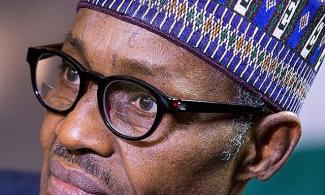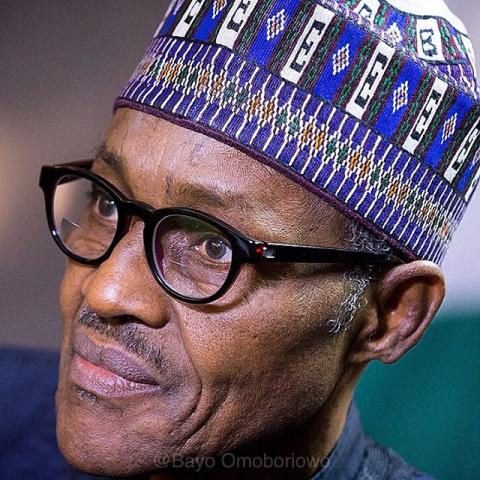
Citizens of Africa’s most influential country of 183 million will agree with me that Nigeria’s problems are compounded by the extraordinary scale of outright theft of oil and gas money by government officials, corporations, and small mercenary/militant groups.
Remarkably, mainly colorful and inflated accounting books were kept by these conniving gangs; full of financial shenanigans and misleading numbers but very small money and whole scale environmental destruction of the Niger Delta and parts of the south-east.
To understand some of the factors which impacted the first year and will affect this second year of Nigeria's democratically-elected President (2015), the retired army general Muhammadu Buhari, you have to examine seriously, at least, seven major issues.

First, is the dramatic drop in the price of a barrel of oil from the $100 per barrel in mid-2014 to the mid and high $40s during his first year. With fewer resources, an escalating population, more than 12 million unemployed youths and hundreds of yet-to-be-fulfilled campaign promises, there are legitimate concerns and frustration of expectations regarding Buhari’s not quite clear agenda. Thankfully, the price of oil has increased to $50 per barrel. That is, using the global benchmark for Brent crude and West Texas Intermediate oil price for May 25, 2016.
Second, is that the exponential loss of exchange value for Nigeria’s national currency, Naira, has been catastrophic as the daily, operational reality for the unemployed, working class, middle class, business/employers, importers, exporters and even the very rich in Nigeria.
Third, the higher and tripled price of fuel for cars at the gas/fuel stations as stipulated by the Buhari administration has escalated inflation and impacted the transportation of foods and essential commodities. Buhari has kept the oil/gas/petroleum portfolio. That’s why fuel scarcity and expensive fuel have since become Buhari’s challenge as well as a burden as his presidency enters its second year. Since Nigeria depends on crude oil/petroleum sale for nearly 71% of its national income, under the current rate, there will necessarily be, at least, a 48% reduction in funds going to the 36 States of Nigeria and its local government administrations. According to the Deutsche Bank, for Nigeria to balance its federal budget for the 2014-2015 period, it needed a revenue stream pegged at $120 per barrel. It did not happen.
Amidst many disruptions this May 2016, Nigeria’s shipment dropped to 1.1 million barrels of oil per day (OPEC’s 10th highest; Angola is Africa’s top producer); and will need to be increased to at least 2.1 million barrels per day to begin to meet the spiraling bars of expectations awaiting Buhari, the 73-years-old man who ruled the country as a dictator from December 1983 to August 1985.
Fourth, Buhari needs to gainfully engage the army of unemployed Nigerian youth, rebuild the country’s transportation and petroleum infrastructure, repair the dilapidated shacks which Nigerian kids go for their education and update the non-equipped death beds in dirty, strange places named “hospitals” (seriously, really). Anyway, who cares; after all, the rich Nigerians have their own doctors in different cities of India, in Dubai, Germany, France, the U.S., London.
Fifth, while Nigerians and other accountability agencies commend Buhari for probing and collecting billions of dollars from the stinking, plundering and primitive impunity of the gangs and some “steak holders”— especially from the Jonathan and Obasanjo presidencies — they ask a follow-up question: how much has been collected and what are they being used for?
Sixth, the defiant escalation by the ISIS-backed terrorists Boko Haram regarding who completely and, in toto, defines and holds final authority and power over the geo-political integrity of Nigeria. It is remarkable that the Islamic group’s response since Buhari announced he will crush the group has killed almost 5,100 persons.
Seventh, what is the core vision for governance, now and into Nigeria’s future, by President Buhari? Only one year ago, he was, literarily, canonized as the second coming of a strict “miracle worker” by his teeming supporters and a jaded country. Today, the same country is divided into those who are awaiting the long-in-coming fruits of hopeful change versus those who insist they have seen the Buhari movie before, and it did not end well; they swear the leopard has not changed its ways…. Worse, they predict he will drown in his mechanized ethnoreligious zealotry and end as a catastrophic failure! No!
As Buhari begins his second year in office, the question amidst the dramatic interplay of the current opportunities for a national rebirth, is whether rise to the challenge of history to be recorded as a man who had a rare second chance and truly turned Nigeria away from being the playground of economic leeches, political gangsters, irreligious murderers, social swines....
Dr. Chido Nwangwu, Founder & Publisher of USAfrica multimedia networks since 1992, first African-owned, U.S-based newspaper published on the internet USAfricaonline.com; served as adviser to Houston's ex-Mayor on Africa business and recipient of several journalism and public policy awards, has been profiled by the CNN International for his pioneering works on multimedia/news/public policy projects for Africans and Americans. He’s completing the 2016 book, titled ‘Mandela & Achebe: Leadership, Identity, and Footprints of Greatness.’ Follow him @Chido247